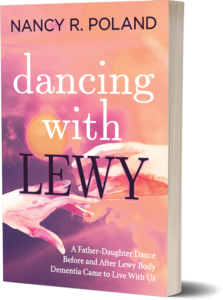Grief and Renewal of the Mind

This summer I have been following Susie Larson’s devotional series taken from her book “Fully Alive“. I had no sooner written my last blog on grief, when the chapter “I’m Grieving” came up on my email notification.
Susie is a writer and speaker from the Minneapolis area. Throughout her life she has struggled with chronic physical illness, financial and family challenges. In “Fully Alive” she explores how our emotional, spiritual, and physical health are linked together. In the chapter on grief, Susie talks about doing the difficult work to move ourselves through the grief process; I’ve summarzied some of her ideas.
There are three unhealthy ways of dealing with grief that may stand in our way of returning to good mental, physical and spiritual health:
- We stuff and numb – Instead of dealing with hurt we shove our feelings down into our souls to deal with later. Then what happens? Postponed grief ensures an inability to heal from the event.
- We deny and deflect – We may “deny” our own grief by going into a flurry of activity. We “deflect” by focusing on others instead of dealing with our own issues. Susie writes, “Scripture does say that we’re to prefer others ahead of ourselves, but Jesus intended for us to do so with a full, free, and whole heart…we numb out on Christian activity while our souls are longing for attention.”
- We rehearse and rehash – Victim-minded, negative, self-focused, self-destructive thoughts can repeat in our mind, over and over again. Similar to my previous blog, Susie talks about the process in our brains called neuroplasticity. When we focus on destructive thoughts, our brain hardwires those circuits. When we focus on hope and God’s promises, our brain can rewire those circuits, leading to health and healing.
So how do we deal with grief, whether it be from a personal loss, a long-ago incident, or the death of someone close to us?
- Grieve, my friend. Cry, reflect, take the time to process your loss. Climb the mountain.
- Face the wounds, and if needed, seek the help of a Godly counselor or mentor. Do not let sorrow lead to chronic, clinical depression.
- Practice a zero-tolerance policy when it comes to victim thinking. Replace your brain space with thoughts of gratitude, joy, and hope, creating new neural circuits leading to healing.
- Seek God, read scripture, claim God’s promises for us to live whole and free lives.
God promises renewal!
But when the kindness and love of God our Savior appeared, he saved us, not because of righteous things we had done, but because of his mercy. He saved us through the washing of rebirth and renewal by the Holy Spirit. Titus 3:4-5
Do not conform to the pattern of this world, but be transformed by the renewing of your mind. Then you will be able to test and approve what God’s will is—his good, pleasing and perfect will.” Romans 12:2



